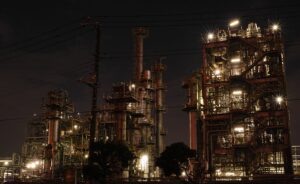Across Europe, a wave of farmer protests has emerged, started last year in the Netherlands, but surged further within France, Belgium, Italy, Spain, Lithuania, Romania and most recently in Germany. The reactions were manifested by a huge amount of tractors blocking major roads, or in France’s case, spraying manure on local government buildings. What are the main factors driving these “sieges,” as defined by the media? The stringent environmental policies imposed on agricultural practices, coupled with the compounding effects of the ongoing economic and food crisis in the region caused farmers to find themselves trapped in the crossfire of these challenges. We may say that the protests underline the delicate balance between implementing environmental policies while maintaining socioeconomic justice.
European Union’s Green Policies
The protests are linked to the European Union’s environmental policies that aim to address climate change and promote sustainable agriculture. Farmers, however, argue that these regulations are burdensome and impose substantial costs on them, thus, threatening the viability of their livelihoods. The Common Agricultural Policy (CAP), an annual €55 billion subsidy system, that historically encourages economies of scale, leads to consolidation and leaves many farms with high debt. The EU’s “farm to fork” strategy, part of the European Green Deal, further stresses farmers with ambitious targets for reducing pesticides and fertilizers and increasing organic production. This push towards reduced pesticide use, lower emissions, and more sustainable farming practices has left many farmers dealing with the financial difficulties of transitioning to a greener order. Sadly, neither any of the primary Green Deal standards have been implemented nor the EU’s Farm to Fork objectives achieved, even though they would have benefited farmers.
Systemic Inequalities Unveiled
The demonstrations have brought to light the systemic inequalities embedded in environmental policies and their economic realities. The system that CAP puts front to organize Europe’s agricultural policy in a unitary direction, unfortunately, profits the bigger businesses rather than the small producers because a significant portion of funds is allocated based on cultivated hectares. Also, powerful retailers and food corporations can enforce lower prices on farmers. Moreover, agrochemical multinationals apply pressure on farmers by escalating the prices of essential inputs like hybrid seeds, pesticides, fertilizers, and animal drugs. One of these agriculture corporations is Copa-Cogeca, deemed as the most powerful farming lobbies of EU, and is quite decisive on which EU standards should be strengthened or weakened. Despite Copa-Cogeca present itself as a representative of all farmers, they generally defend the interests of a minority of farmers, who are the largest and most strong players in the industry. This puts smaller producers in a disadvantageous position and leads them out of business because, in this system, only industrial farms can sustain their operations with low selling prices despite higher costs. The crossroad for family businesses or small owner farms is clear: they either need to expand or exit the industry.
Economic and Food Crisis
Beyond established systemic inequalities, Europe’s current conjuncture also constitutes a significant aspect. Europe is currently facing a confluence of economic challenges, especially due to the repercussions of the COVID-19 pandemic and a food crisis. Coupled with extreme drought, wildfires, floods and storms, there has been a € 9 billion annual economic loss in Europe and the United Kingdom (Marco Continero/EUObserver). Farmers, as one of the most economically vulnerable classes, feel the brunt of these crises. The protests highlight the need for policies that not only address environmental concerns but also consider the economic resilience of farmers, especially in the aftermath of the pandemic.
What complicates the situation more is the geopolitical landscape of Europe, particularly the trade privileges extended to Ukraine due to the ongoing war. As the European Union grapples with supporting Ukraine, farmers argue that these geopolitical decisions further strain their economic predicament. The protests shed light on the complex interplay between global politics, trade dynamics, and the domestic challenges faced by European farmers.
Government Response to the Protests
Amidst these challenges, the timing of the protests is significant, coinciding with the upcoming elections in the European Union. The discontent among farmers adds another layer of complexity to the political ground, forcing policymakers to confront the pressing issues, but also giving opportunity for far-right formations to include farmers’ grievances in their discourse, which is already contrary to environmentalists. For instance, in France, the polls show that the farmers’ resentment resonates with the public. One of the polls demonstrates that 87% of French people support farmers and 73% of them considered the EU to be a drawback for farmers, not an asset. In other words, rather than being a supporter, the European Union is perceived as an enemy, giving bureaucratic orders from an ivory tower, while its leaders ease import restrictions for global agricultural giants or war-zone countries like Ukraine. Antonio Barroso, an analyst from Teneo, suggests that the far-right’s strategy is to Europeanize the conflict; “Farmers are a small group, but these parties think they can attract the whole rural vote by extension.” In its initial reaction to farmers’ protests, the European Commission granted a reduction to Common Agricultural Policy (CAP) requirements for the third consecutive year, allowing a small percentage of cultivatable land to remain fallow. This action not only puts considerable risks to ecosystems and potentially stagnates prices by boosting production but most importantly, it diverts the attention from the essential systemic reforms that farmers actually need. These responses by national governments and the executive comission of the EU by curbing some of the environmental objectives, this time, got reactions of discontent from the environmentalist front. Reversing years of progress on her environmental agenda, Von der Leyen abandoned green farming regulations, imposed restrictions on food imports from Ukraine, and abandoned a proposal to reduce pesticide usage. With a European election approaching, neither Paris nor Brussels was willing to confront farmers ready to protest by blocking roads in southern France with Spanish tomatoes or launching a demonstration at a food logistics hub on the outskirts of the capital. The criticism made by the environmentalists touches upon the inequality of government reactions; if the same protests were made by the environmentalists, the national and supranational governments wouldn’t be that nurturing in their response.
To Conclude…
The continuous protests highlights that trying to shift towards a sustainable agriculture, energy, and transport policy can generate a considerable political resistance both within and beyond the intended sector. This resistance has the potential to worsen existing inequalities or give rise to new ones, hindering the involvement of affected communities in the ongoing transition. Therefore, striking a balance between environmental sustainability and socioeconomic justice is a formidable task that requires nuanced policymaking. As the EU faces a pivotal moment with upcoming elections and mitigating geopolitical conflicts in its eastern front, addressing beyond the grievances of farmers, the economic and agricultural system of Europe is imperative to assure the environmental sustainability is prevalent in the EU’s agenda.
References:
- Leali G., Goury-Laffont V., “The French farmer on a tractor is back — running the EU”,
POLITICOEU, 2024 - Hancock S., “Tractors block major roads as ‘siege of Paris’ begins”, BBC News, 2024
- Rose M., “Europe’s angry farmers fuel backlash against EU ahead of elections”, Reuters, 2024
- Casert R., “Why European Union officials are taking angry farmers so seriously before Thursday’s summit”, AP News, 2024
- Contiero M., “Farmers are right to protest — but Green Deal is wrong target”, EUObserver, 2024
- Ruaud H., “Crise agricole : la FNSEA est « responsable » du piège qui se referme sur les agriculteurs, pointe Yannick Jadot”, Public Senat, 2024
- Henley J., “Why are farmers protesting across the EU and what can the bloc do about it?”, The Guardian, 2024
- Trompiz G., Levaux C., “European farmers step up protests against costs, green rules”, Reuters, 2024





